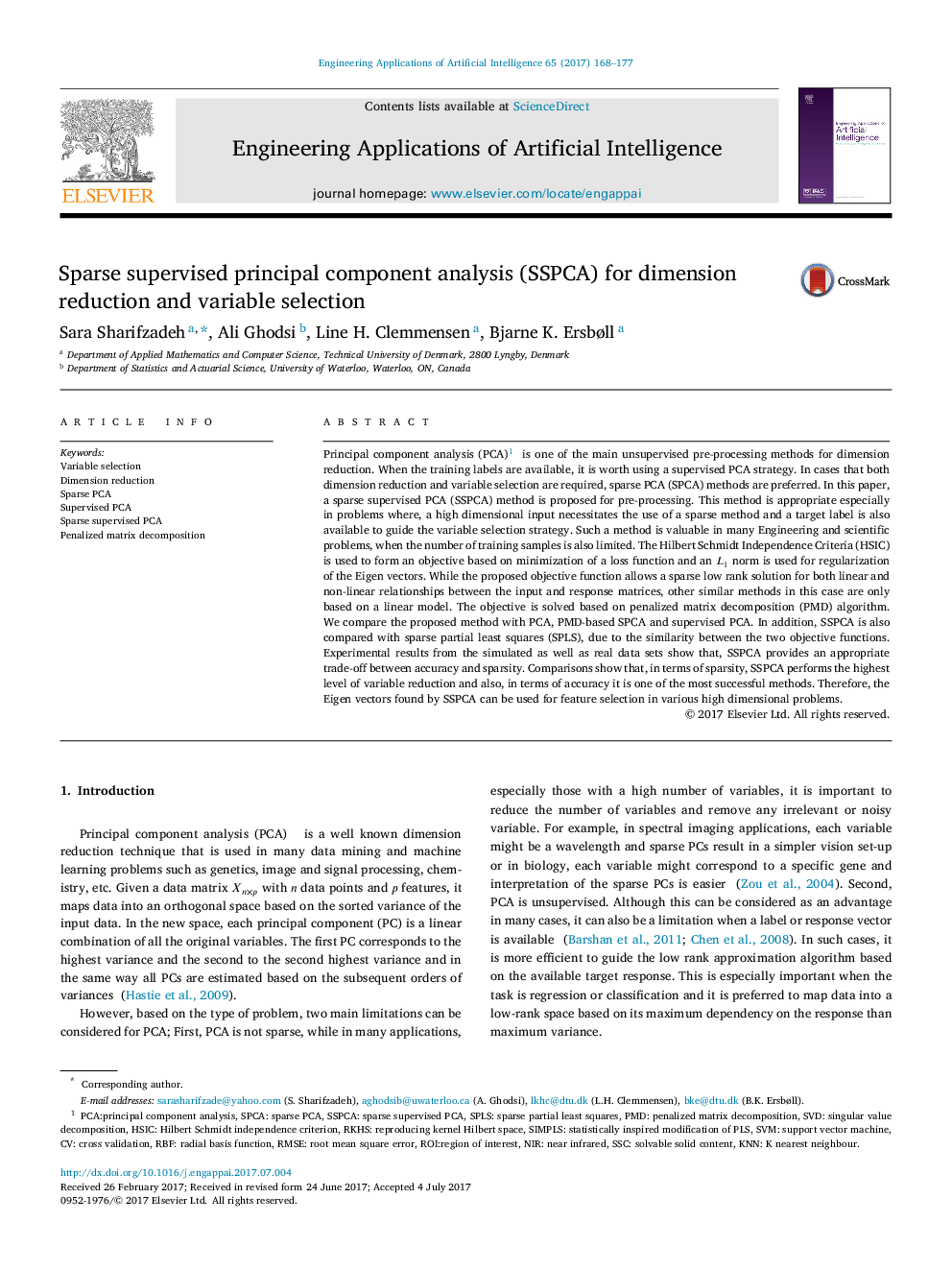| Article ID | Journal | Published Year | Pages | File Type |
|---|---|---|---|---|
| 4942593 | Engineering Applications of Artificial Intelligence | 2017 | 10 Pages |
Abstract
Principal component analysis (PCA)1is one of the main unsupervised pre-processing methods for dimension reduction. When the training labels are available, it is worth using a supervised PCA strategy. In cases that both dimension reduction and variable selection are required, sparse PCA (SPCA) methods are preferred. In this paper, a sparse supervised PCA (SSPCA) method is proposed for pre-processing. This method is appropriate especially in problems where, a high dimensional input necessitates the use of a sparse method and a target label is also available to guide the variable selection strategy. Such a method is valuable in many Engineering and scientific problems, when the number of training samples is also limited. The Hilbert Schmidt Independence Criteria (HSIC) is used to form an objective based on minimization of a loss function and an L1 norm is used for regularization of the Eigen vectors. While the proposed objective function allows a sparse low rank solution for both linear and non-linear relationships between the input and response matrices, other similar methods in this case are only based on a linear model. The objective is solved based on penalized matrix decomposition (PMD) algorithm. We compare the proposed method with PCA, PMD-based SPCA and supervised PCA. In addition, SSPCA is also compared with sparse partial least squares (SPLS), due to the similarity between the two objective functions. Experimental results from the simulated as well as real data sets show that, SSPCA provides an appropriate trade-off between accuracy and sparsity. Comparisons show that, in terms of sparsity, SSPCA performs the highest level of variable reduction and also, in terms of accuracy it is one of the most successful methods. Therefore, the Eigen vectors found by SSPCA can be used for feature selection in various high dimensional problems.
Related Topics
Physical Sciences and Engineering
Computer Science
Artificial Intelligence
Authors
Sara Sharifzadeh, Ali Ghodsi, Line H. Clemmensen, Bjarne K. Ersbøll,
